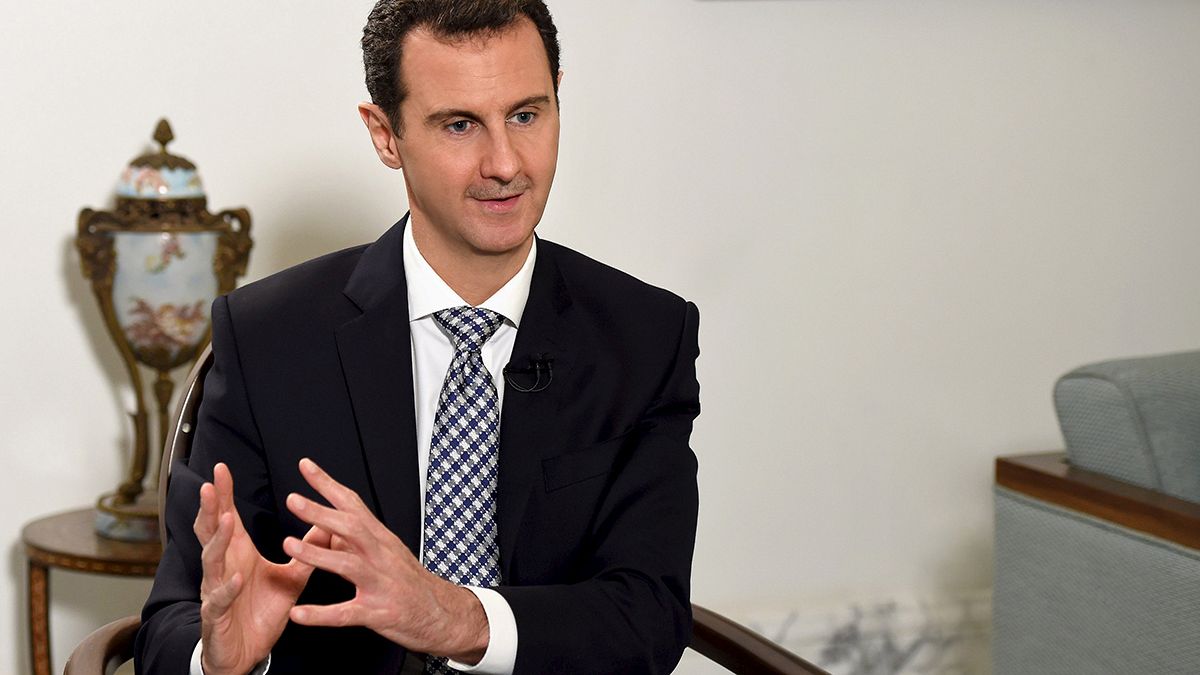The High Negotiations Committee the HNC is a negotiating committee formed by various opponents of the Bashar al- Assad regime and is present at the
The High Negotiations Committee the HNC is a negotiating committee formed by various opponents of the Bashar al- Assad regime and is present at the Geneva talks.
The UN Special Envoy to Syria Staffan De Mistura chose “individual” negotiations for this round of peace talks. In the context of a fragile ceasefire or even a hollow one the representatives of this opposition group had agreed to take part.
But their creed is the same as the regime opponents in the street. A video posted online purports to come from Aleppo on the 5th anniversary of the conflict. The crowds gathered chanting “remove Bashar wherever he is”. They want a transitional body set up with all powers including those of the president.
That is without Bashar al Assad in that role. The HNC has been consistent in its demand, “there will be no role in this body for those who have committed crimes, including Assad.” Suffice to say that the gap between the regime and the opposition representatives has not narrowed.
And for the HNC there is another potential problem. At the negotiation table there is a new opposition group called Moscow. It was formed after meetings in Cairo and the Russian capital and, as its name suggests, has the support of Vladimir Putin.
It’s understood the group presented Staffan de Mistura a document with seven principles of political transition in the country which, one of the group said refers to proposals on a new constitution, elections and governing body.
But how will the surprise news of the partial withdrawal of Russian forces play out in the negotiations. Or was the decision a surprise? The head of the Syrian delegation at the peace talks, Bashar al-Ja’afari revealed to reporters today that the decision was a common one taken by both President Putin and President Assad. “So it was no surprise to us,” he said.
Salim al-Muslet is the spokesman for the High Negotiations Committee the HNC. In advance of these talks he had said the HNC was not putting any preconditions on its participation. Euronews Faizah Garah met with him to hear how he believes the talks are progressing.
euronews: “Russia has decided to withdraw troops from Syria. How do you view this decision, what do you think of it?”
Salim al-Muslet: “I think it is a positive decision if it will be realised on the ground. A total withdrawal of Russian forces will of course impact the discussions here in Geneva. But if it is a partial withdrawal of troops then we ask the question what will those remaining in the country do?
‘Russian forces intervened in Syria last September in order to help Bashar al Assad and they targeted strikes against civilians and not as they claimed to fight terrorism. We hope that the Russian position is really constructive in these negotiations given that Russia was a key partner in Geneva 2. So we also expect it to be a true partner in these Geneva 3 negotiations.”
Euronews: “Do you think in taking this decision Russia is pushing towards a resolution of the Syrian crisis.”
Salim al-Muslet: “It is in the interest of everyone to work for a solution to the crisis in Syria. There are already several countries that have worked hard for that to happen there and that is why we hope that Russia will back the same resolution as the friendly countries by pushing forward in these negotiations. These negotiations are important for us if they result in a successful closure and so bring an end to the suffering of the Syrian people. This goal can only be achieved if the intentions are serious and sincere.”
Euronews: “What are the demands which you made to the UN envoy to Syria, Staffan de Mistura?”
Salim al-Muslet: “We have met several times with Staffan de Mistura since the resumption of talks and the first time was when we arrived here in Geneva. These negotiations are based on the principles of Geneva 1, on the Riyadh conference, as well as resolutions 2118 and 2254 of the UN Security Council.
‘We hope to begin negotiations with a discussion of the composition and authority of transitional governance with prerogatives. Bashar al-Assad can not have a role in Syria’s future.”
Euronews: “What is the role of Europe in reaching a solution to the Syrian crisis?”
Salim al-Muslet: “European countries are friendly countries that support the Syrian cause. Europe bears a heavy burden in hosting large numbers of refugees. The disaster is huge for the people of Syria caused by the head of state. We are here to negotiate a new phase in the future of Syria without the one who caused this disaster to our country.”
